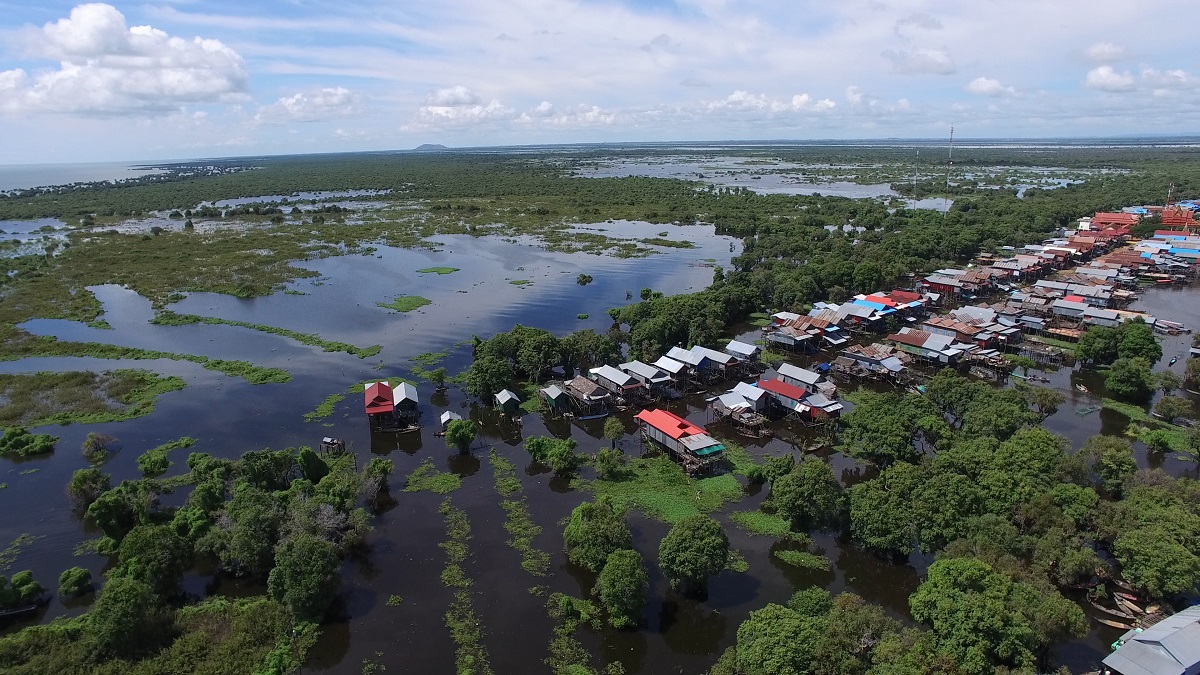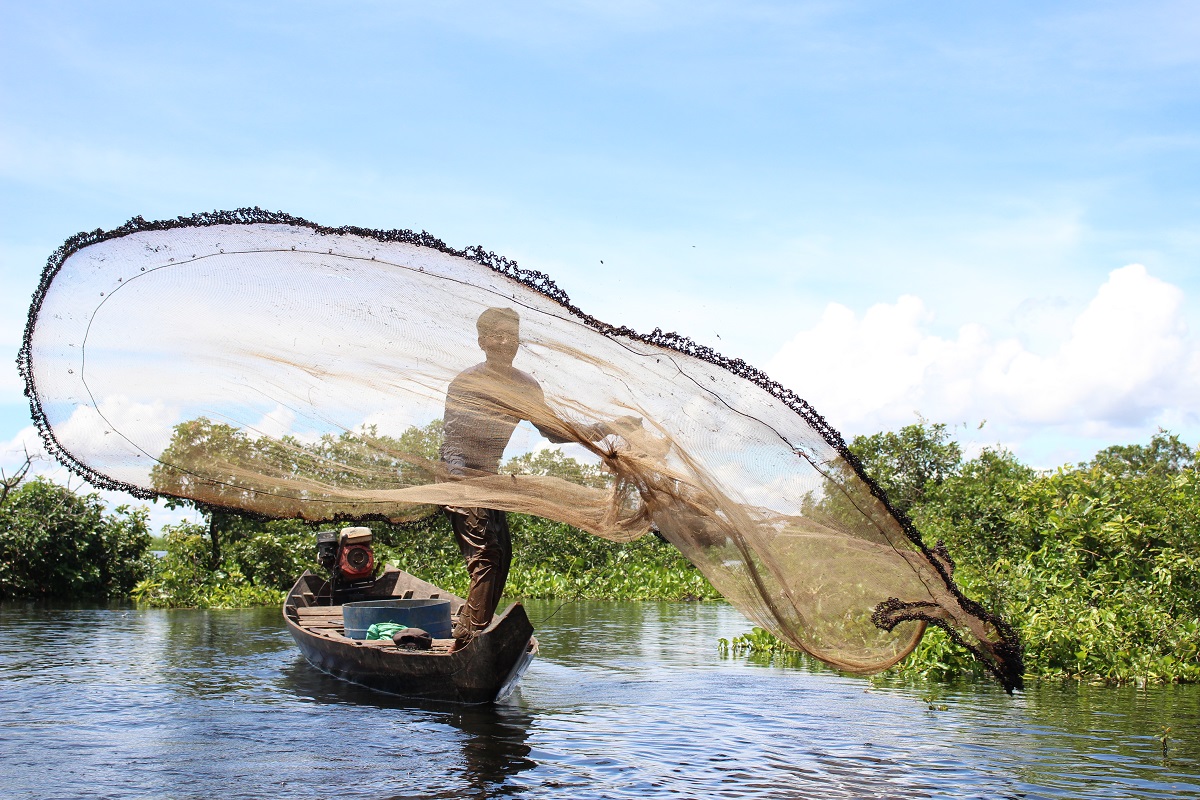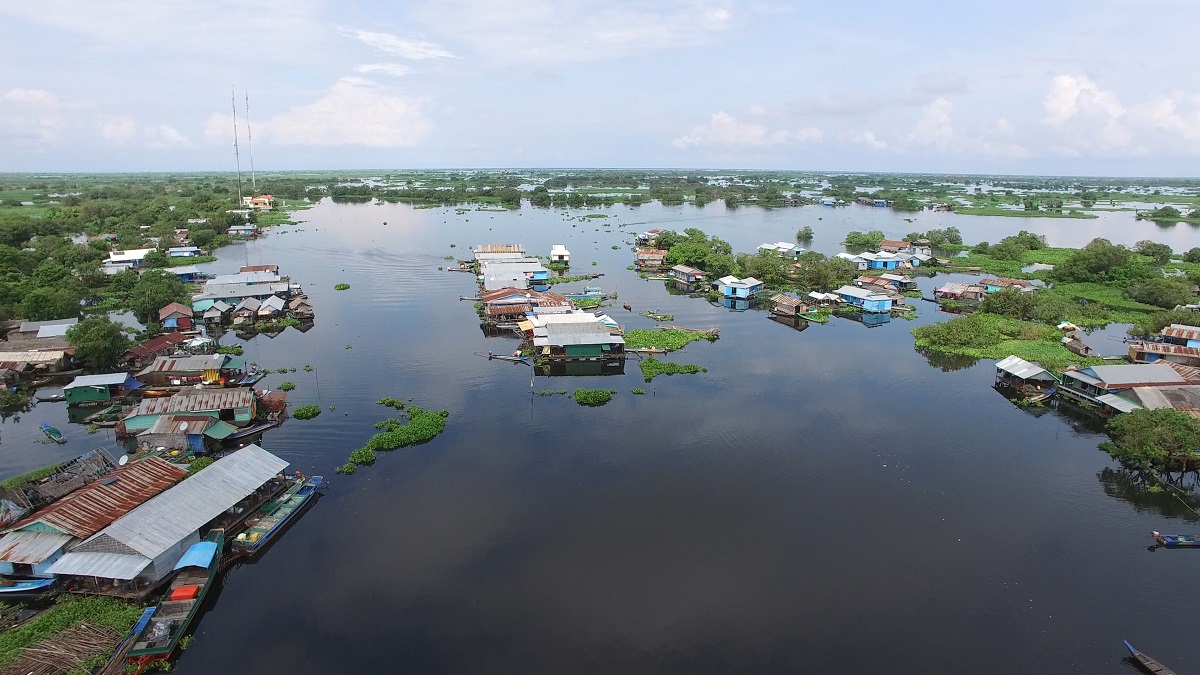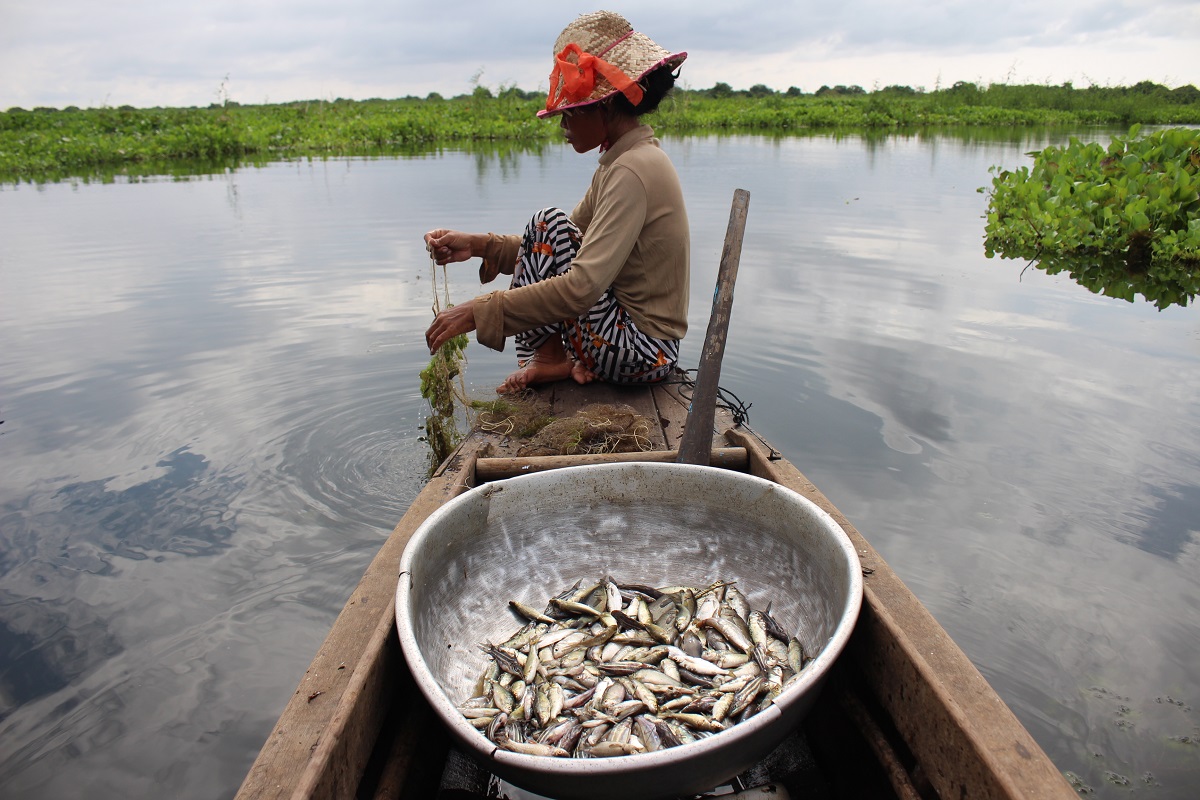Cambodia
Since the late 1990s, Cambodia has been one of the world’s fastest growing economies, which has lifted millions out of extreme poverty. The Tonle Sap Lake forms the geographic and cultural heart of Cambodia. Expanding seven times in area and 20 times in volume during the wet season, the lake is extraordinarily productive, producing more freshwater fish than all of North America. The lake’s fish represent 10% of GDP and 80% of Cambodia’s animal protein consumption.
The Tonle Sap Lake is threatened by more frequent wet season droughts and upstream water retention that have greatly weakened the flood pulse that forms the basis of its natural productivity. The possibility of dams on the Mekong mainstream in Cambodia represents an existential threat to the lake by blocking the movement of migratory fish that represent half of the region’s fish catch.
The government is reacting, in 2020, Prime Minister Hun Sen issued a moratorium on all mainstream dams and at the UNFCCC COP26 in 2021, Cambodia committed itself to not building any Mekong mainstream dams.
At 40%, Cambodia has one of the world’s highest percentage of land under legal protection. But most of these suffer from weak management. How the country’s pays for effective protected area management, the statuary role of local communities in protected area management, and the role of the private sector in financing conservation and major policy questions.
In 2017, IUCN signed a Host Country Agreement with the Ministry of Foreign Affairs and International Cooperation and 2019 Cambodia became an IUCN State member. IUCN works closely with Ministry of Environment and the Fisheries Administration.


Programme of Work
Our major projects include supporting the development of policy to support conservation friendly businesses operating inside protected areas; management plan for Ramsar Sites; the Critical Ecosystem Partnership Fund (CEPF), which supports civil society participation in the conservation of key biodiversity areas; policy research and advocacy on optimising water-food-energy trade-offs; establishing sustainable financing mechanisms linked to fish conservation areas to support community fisheries; transboundary marine fisheries management with Vietnam, and karst conservation.

Partners
All of IUCN’s projects in Cambodia are implemented in collaboration with government, its members, NGO partners and private sector.







